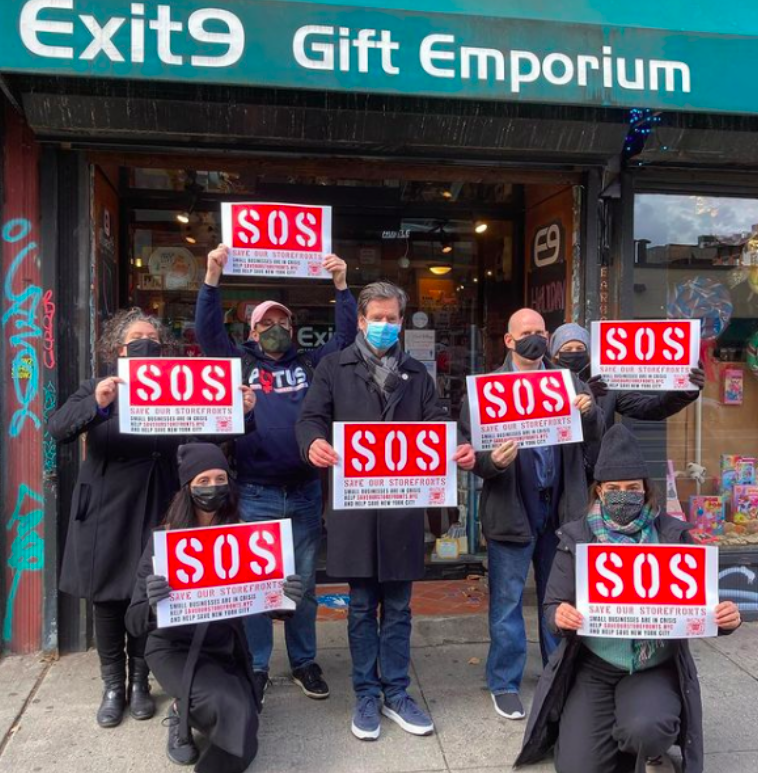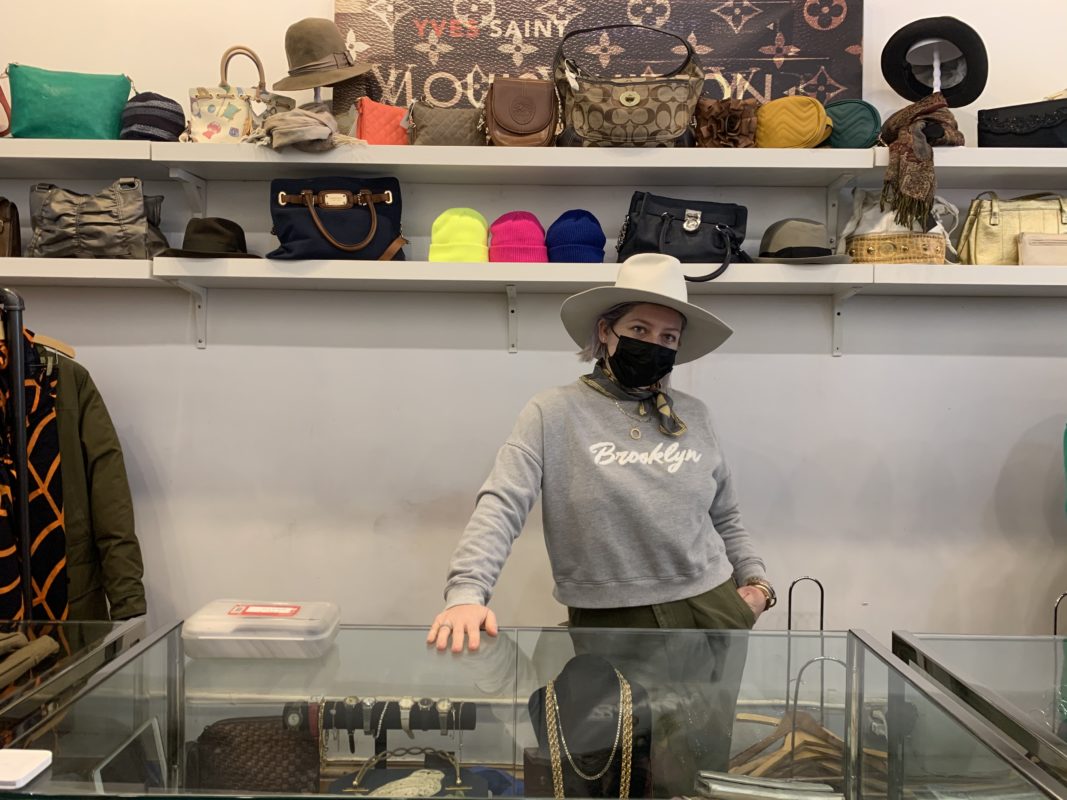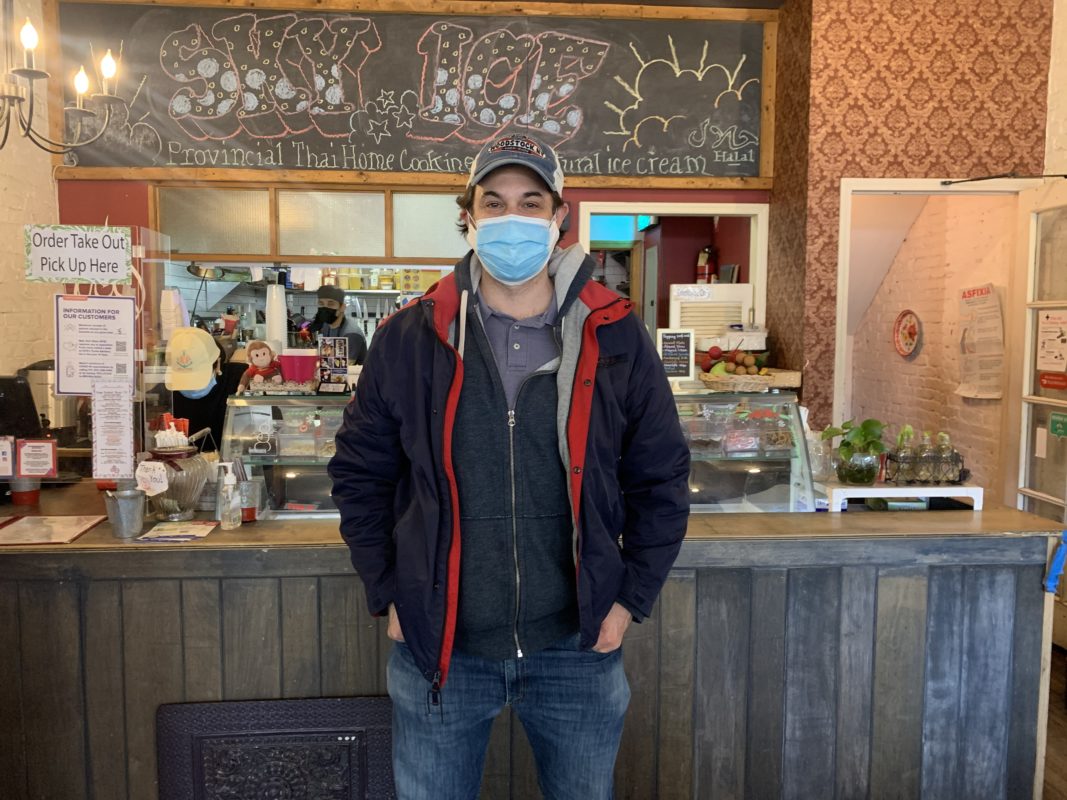Save Our Storefronts – The Fight For Rent Relief For Small Businesses One Story At A Time


PARK SLOPE – A coalition of New Yorkers are coming together to demand rent relief for commercial tenants.
Save Our Storefronts, a group made up of small business owners, organizations, and voters, have since June been working together with New York’s elected officials to provide small businesses with rent relief and commercial eviction moratorium. In particular, they would like to see the New York State Senate Bill S 8865 and Assembly Bill A 10901 to suspend rent payments for commercial rent tenants passed.
This past Saturday, Chris LaCass, a Volunteer Organizer with Save Our Storefronts, alongside Joanna Tallantire, Deputy Director of the Park Slope 5th Ave Business Improvement District, went on a “Small Business Walk.” LaCass and the Tallantire visited several businesses, recording hardships to keep their businesses open, paying staff, and paying rent. Save Our Storefronts will then compile the recordings into a video to send to Park Slope’s Senator, Kevin S. Parker, to sponsor bills S 8865 and A 1090, and advocate for them to be passed.
“As we make relationships with, especially the newer elected officials who really want change, they want to get rid of these obstacles, which are really entrenched. As we meet with them, we are developing a strategy for how to get these things done inside of a system that is designed to prevent certain things from happening that don’t benefit a certain class of people,” said LaCass.
The walks are designed to get the attention of state legislators, and to get their cooperation, said LaCass. Assemblymember William Colton is a sponsor of the bill, co-sponsors include Brooklyn Assembly Members Walter Mosley, Jo Anne Simon, Robert Carroll, Mathylde Frontus, Charles Barron, Nick Perry, Diana Richardson as well as Senators Zellnor Myrie and Julia Salazar.

At Slope Vintage, business is down 50%, said co-owner Liz Murphy, who runs the shop with her husband.
“We were closed for five months,” said Murphy.
Even with help from government programs like the small business loan and Paycheck Protection Program, Slope Vintage is struggling to make rent. Both Murphy and her husband have resorted to only paying their four staff members and their bills and not paying themselves.
“It was a personal choice that I forego my salary for them. I didn’t become a small business owner to stay self-employed. I became a small business owner to employ people, to be part of a community,” said Murphy.
Murphy’s landlord is working with her and her husband, she said. For the five months that Slope Vintage was closed, Murphy’s landlord is offering her a “current forgiveness situation” until she can apply for more Paycheck Protection Loans and Small Business loans, she said.
After Murphy is able to receive more aid, she will work with her landlord to get caught up on rent.
“He (landlord) said, ‘Don’t worry about it. It will take me five months to get someone new'” to occupy the commercial space, said Murphy.
Murphy also said that her landlord is also afraid of possible looting if the storefront was empty as crime in Brooklyn has risen.
“If the store lays vacant, it’s unsafe for him (landlord). He needs us to hold the insurance and make sure that every night the gate comes down,” said Murphy.
Slope Vintage is hanging on “because we’re a small business team and all our eggs are in one basket. For us this has to work,” said Murphy.

At SkyIce, a Thai food and ice cream restaurant, revenue is also down 40-50%, said owner Jonathan Bayer.
“In the best of times, competing in the restaurant industry is hard enough,” said Bayer. Now, with pressure to keep as many employees on as he can, to keep his business afloat, the pressure to pay rent is something that Bayer has not felt in the ten years the business has been open. “I don’t know how to recover from that,” said Bayer.
In New York alone, small businesses employ 50.2% of the state’s workforce, according to the Small Business Trends website. Small businesses also support their local economies. For every $100 spent in a local small business, $58 stays in the communities according to the Maine Center for Economic Policy, website.
“If the small businesses, who employ most of the new Yorkers go out of business, that means the New Yorkers that lose their jobs will not be able to pay their residential rent,” said LaCass.
“It is very important that every New Yorker understands that when we say we love small businesses, it’s not a feel-good thing. It’s totally self self-serving. Everything is on top of them. And it’s a mistake to think that real estate and Wall Street are the bulk of the economy because they’re just not. They’re a small part of it. It’s real important that people pay attention to their small business, the problems that they’re having and that they find the organizations that are working to get them relief,” he added.




